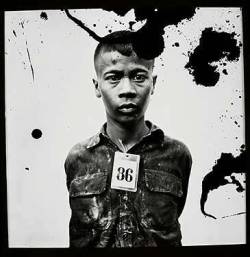...For reasons of history and as a matter of law, both the Cambodian government and the international community share responsibility for making this [Khmer Rouge trial] court a success. To do so, they must address several major challenges.First, unlike hybrid tribunals in East Timor, Kosovo, and Sierra Leone, international judges are a minority.... There are good reasons why mixed tribunals should have substantial national components. Nonetheless, this arrangement poses particular challenges in a country where the quality and independence of judical decision-making have long been questioned.
Second, the length of time that has passes since the crimes--more than 30 years, in some cases--far exceeds that for any comparable proceeding.... Cambodia's long delay complicates the task of preserving evidence, including human memory, that is so essential to proving guilt.
Third, the court site is located in a military compound far from downtown Phnom Penh. If ordinary people are to observe this historic event, buses will have to transport them. The proceedings should be broadcast.... Creative outreach strategies...[are needed] to target the predominantly rural population to ensure that all Cambodians have the opportunity to understand these proceedings....
Part 2
Fourth,...opposition leaders and human rights activists have been subjected to criminal charges for speech critical of the government. Draft legislation seeks to make criminal defamation a permanent fixture,and includes new provisions making it an offense to criticise a court ruling.
...Cambodian survivors of the Khmer Rouge recall the daily fear of criticizing that regime; it would be especially tragic if Cambodians did not feel free to express their views of the Extraordinary Chambers....
Fifth, Cambodia has a shortage of highly qualified lawyers, because the legal profession was nearly wiped out by the Khmer Rouge. Yet, contrary to the practice in other international and hybrid war crimes courts,local law permits only Cambodian lawyers to represent the accused....
Finally, having generously contributed most of the tribunal's funds, donor governments cannot just sit back and watch. ...They may have to provide additional resources. The court's bare-bones budget of US$56 million over three years does not cover basics such as a safe house for protected witnesses, transcripts of court testimony, or a library. It would help if the United States, which has yet to contribute to the Extraordinary Chambers, were to do so.
 The saga of the Khmer Rouge trials continues--slowly, the way the government wants it--and there is a lot of interesting news to report. My previous format was inconvenient to update and read, however, so I am introducing a new format that will allow easier insertion of daily events. A backlog of items starting in May will be posted first to catch up to the present day.
The saga of the Khmer Rouge trials continues--slowly, the way the government wants it--and there is a lot of interesting news to report. My previous format was inconvenient to update and read, however, so I am introducing a new format that will allow easier insertion of daily events. A backlog of items starting in May will be posted first to catch up to the present day.